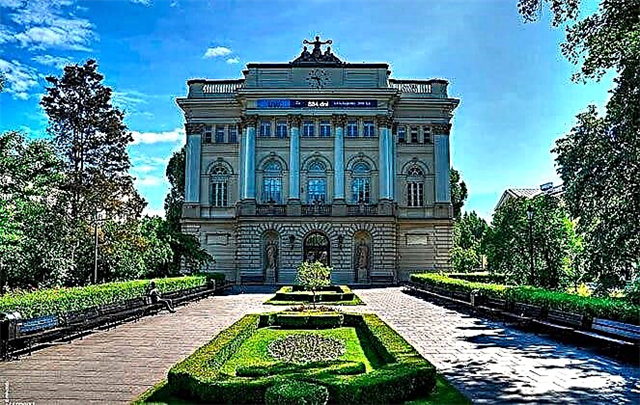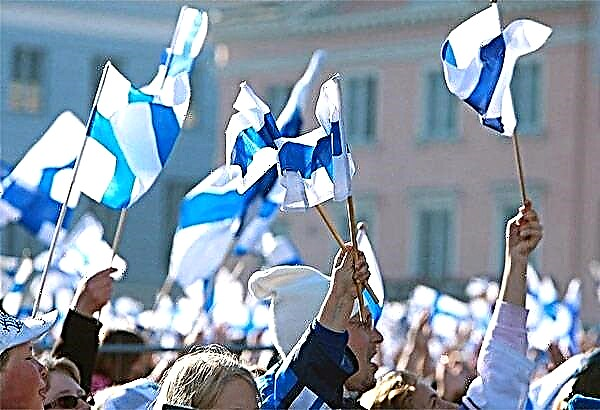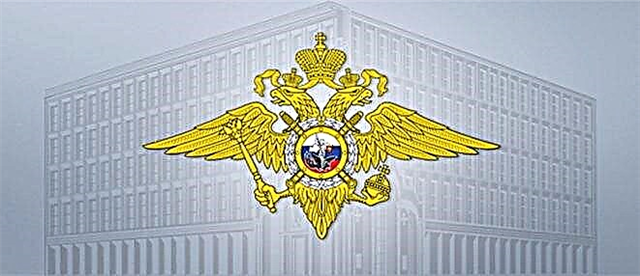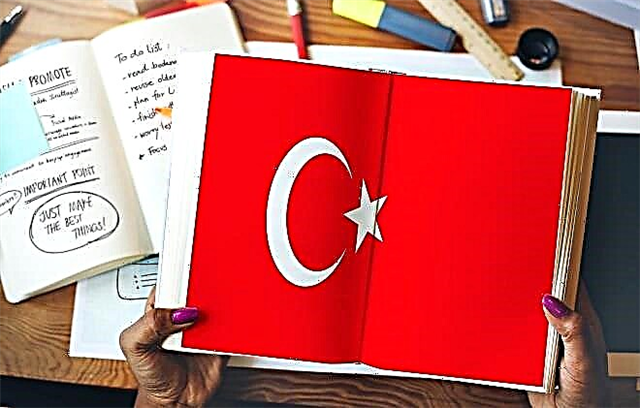Rest in Turkey is an opportunity not only to take advantage of the benefits of comfortable resorts, but also to get to know the traditions, mentality, art, and religion of a wonderful ancient country. Among its most important cultural features is the Turkish language.

Formation of the Turkish language
The history of the Turkish language knows amazing and paradoxical transformations: it has changed more than once, borrowed the cultural characteristics of neighboring peoples and again returned to its original ethnic origins.
Linguists attribute the language of Turkey to the Oghuz group of Turkic languages. It includes the dialects spoken in Central Asia and partly in the Caucasus. These are Tatar, Turkmen, Bashkir, Kyrgyz, Azerbaijani and many others.
In the early period of the formation of the Turkish nation (before the formation of the Ottoman Empire), the Turkish language was very similar to other languages of Central Asia and the Turkic alphabet was used in writing. But from the 10th century, due to close cultural contacts with neighboring states, the Turks began to use the Arabic alphabet, which was poorly suited for Turkic phonetics.
In addition, the Turkish language was replenished with Persian and Arabic borrowings, as a result of which, by the beginning of the 19th century, the original Turkic component was preserved in it only by 20%. And after the capture of the Balkan countries by the Ottoman Empire (including Greece), separate dialects began to form in the conquered territories. European linguists even began to call the language of Turkey "Ottoman", separating it from the rest of the dialects of the Turkic group.
A return to historical origins occurred only after the fall of the Ottoman Empire, during the era of the Turkish Republic. The leader of the Turkish people Kemal Ataturk played a big role in this.
In 1928, a deep reform of the Turkish language began. It was cleared of foreign borrowings, and the letter was translated into the Latin alphabet. In 1932, the state "Turkish Linguistic Society" was created, which still operates today. Its main task is to modernize the language to serve science, technology and art.
The development of the state language in the country was not peaceful. Different peoples lived in the newly formed republic, who strove for national self-determination. The slogan "One people, one language" proclaimed by Ataturk left no doubt about which language would be dominant in Turkey, but severely discriminated against the culture of national minorities.
For a long time, representatives of other nations living in Turkey were also considered Turks: they had no right to speak their native languages and even mention their historical nationality. This led to numerous ethnic conflicts, including armed ones. Only from the beginning of the XXI the Turkish government has become more democratic in the national question.
The modern language of Turkey is based on a historical Turkic basis. However, linguists disagree about which language Turkish is most similar to. Among the proposed options are Gagauz and Balkan-Gagauz, southern dialect of Crimean Tatar, Azerbaijani and Turkmen.
The Turkish alphabet has 29 letters. Unlike the classical Latin alphabet, Turkish does not have the letters Q, W and X, but some of its own are added.
Currently, the Turkish language is spoken by about 40% of all people using the languages of the Turkic group, or about 75-77 million people in the world. Of these, in 2021, about 60 million live in Turkey, the rest - in the countries of the Middle East, the Balkans, Western Europe, the USA and Canada.
Official language of Turkey
 The state language of the country is Turkish. The literary language of Turkey is formed on the basis of the Istanbul dialect.
The state language of the country is Turkish. The literary language of Turkey is formed on the basis of the Istanbul dialect.
The main features of the Turkish language are the clarity of the phonetic and grammatical structure. In it, words are read in the same way as they are written. There are no exceptions to the grammar rules.
The Turkish language is not an inflectional language, like most European languages, but an agglutinative one. In languages of this type, one compound word can replace a whole sentence. But if in other Turkic languages this property is not used too often, then Turkish is one of the world leaders in creating long, complex and ambiguous words.
At present, Turkish is the most widely spoken language of the Turkic language group. In addition to the Turks, a significant number of residents of Syria, Lebanon and Iraq, some of the islands of the Aegean, speak it.
A large Turkish-speaking diaspora lives in Germany (over 2.6 million people). The Meskhetian Turks (about 200,000 people), who also spoke Turkish, have long lived on the territory of the former USSR. In addition, Turkish is one of the official languages in North Cyprus.
Since the beginning of the 21st century, the Turkish language has also become widespread in Azerbaijan. After the collapse of the Soviet Union, these countries developed close political and economic contacts, including cultural ones, and the significant similarity between the languages of both states allowed their citizens to communicate freely.
Many are interested in whether the Turkish and Azerbaijani languages are similar, and even believe that there is practically no difference between them. But this is not so: although the similarity is really great, the Azerbaijani language retains the common root foundations of the ancient Oghuz dialects, and many different innovations and modifications have appeared in Turkish.
Dialects
The Turkish language is divided into two large dialectical groups: European (Rumelian) and Anatolian (Asia Minor). The first includes Danube, Adrianople, Adakali, Macedonian and Bosnian dialects, the second includes Aydin, Karaman, Izmir, Sivass and Konya.
All dialects of the Turkish language obey general grammatical rules, the difference between them is noted mainly in the use and pronunciation of individual words. Therefore, it is not difficult for the indigenous population of the country to understand each other, even speaking in different dialects. Most of the difficulties are faced by foreigners who start learning Turkish.
Kurdish
The Kurds are an ancient people who in the past inhabited Northern Mesopotamia (Media) and the Iranian plateau. Currently, the mountainous territories called Kurdistan are located on the territory of four states: Turkey, Iran, Iraq and Syria. There are also Kurdish diasporas in the United States, European countries, the Caucasus (Azerbaijan, Georgia, Armenia, Russia), Turkmenistan and Kazakhstan.
The total number of Kurds in the world is about 40 million people, and they are the largest people on the planet that do not have their own state.
Kurdish belongs to the group of Indo-European languages of the Iranian group. Several dialects are distinguished in it, the most common are Kurmanji and Sorani. Modern writing is based on the Latin alphabet.
In Turkey, Kurds make up up to 35% of the population and live mainly in Southeast and Eastern Anatolia. Since the beginning of the twentieth century, Kurds have been actively fighting for their national rights, facing stiff resistance from the Turkish authorities. But since 2009, the Kurdish language finally began to be taught in private universities, and from 2021 it was allowed to optional study it in schools.
Circassian diaspora
The second most widespread national diaspora in Turkey is Circassian. It includes about 2 million people. Turkish Circassians are the descendants of immigrants from the Caucasus during the Russian-Caucasian War, who moved to Turkey the century before last.They belong to different nationalities - Circassians, Adygs, Kabardians, Abazins and Abkhazians, and speak different dialects of the Circassian (Adyghe) language.
Until 1937, the Circassians used the Arabic or Latin alphabet, but later switched to the Cyrillic alphabet, which better conveys the phonetic features of their speech.
Unlike the Kurds, the Circassians do not strive for territorial autonomy; most of them are peacefully assimilating into Turkish society. Many Circassians held high government positions and played a significant role in the life of the country. The most famous representative of the diaspora is the 2006 Nobel laureate in literature Ferit Orhan Pamuk.
Since the 30s of the twentieth century, the Circassian language in Turkey was banned and was not studied in schools and universities. But in 2021, a department of the Circassian language was opened at the University of Duzce, and in 2021 - a magistracy.
What language can you communicate in Turkey
 Tourists who go on vacation to the resorts of the southern Black Sea region and the Mediterranean are interested in what language the locals speak in Turkey, in addition to Turkish, and how to better communicate with them.
Tourists who go on vacation to the resorts of the southern Black Sea region and the Mediterranean are interested in what language the locals speak in Turkey, in addition to Turkish, and how to better communicate with them.
Despite the fact that Turkey is a popular international tourism and resort destination, the locals do not speak foreign languages well. About 80% of them are explained exclusively in their native language.
English is widely taught in schools in Turkey, but you can meet people who are fluent in it mainly in Istanbul. In addition, in the resorts of Bodrum, Marmaris and Kusadasi, most of the locals employed in the tourism business and hotel staff can speak basic or intermediate English.
Of the European languages in Turkey, German is most often heard. This is due to the massive migration of Turks to Germany after World War II.
In areas popular with tourists and immigrants from Russia - Antalya, Alania, Izmir, Trabzon - the Russian language is more often used. Russian-speaking staff can be found in restaurants, cafes, shops and hotels.
Popular phrases and words in Turkish
If you, while vacationing in Turkey, learn a few words and phrases in Turkish, you will quickly gain a good attitude from the locals. And if you want to travel outside the popular resorts, you should take into account that not only Russian, but often English is not understood there. Therefore, the Russian-Turkish phrasebook will be a good help for you.
Phrases that are useful for tourists:
| Russian | Turkish |
|---|---|
| Hello hi | merhaba, meraba, selam |
| Goodbye | göryushurüz |
| thanks | teshekkur ederim, saol |
| Please (as an answer to "thank you") | ridge ederim |
| Please (courtesy) | buirun |
| sorry | affedersinis |
| Yes | evet |
| No | haiyr |
| What is your name? | Adyniz not? |
| My name is... | Benim adym ... |
| I do not speak Turkish | T'yurkche bilmiyorum |
| I do not understand | Anl'amyorum. |
| How much is it? | Kach steam? / Fiyaty ne kadar? |
| It's too expensive. | Chok plowed. |
| Write me the amount, please. | Yazarmysynz lutfen |
| Where can I get a taxi? | Taxiye nerede bulabilirim? |
| Where does the bus stop? | Otobyus nerede duruyor? |
| Call an ambulance. | Ambul'yans chayr'yn. |
| I need a doctor. | Doctor'a ichtiyaj'im var. |
| Help! | Imd'at! |
| I'm lost. | Kaybold'um. |
| I've lost my wallet. | Juzdanym’y kaybett’im. |
| Can you help me? | Ban'a yard'em ad'ermisiniz? |
Conclusion
The study of the culture and historical traditions of the countries of Western Asia will be incomplete without an idea of what language is spoken in Turkey. Of course, it is impossible to learn Turkish during your vacation, but even a cursory acquaintance with its basics will greatly enrich your understanding of the world.











